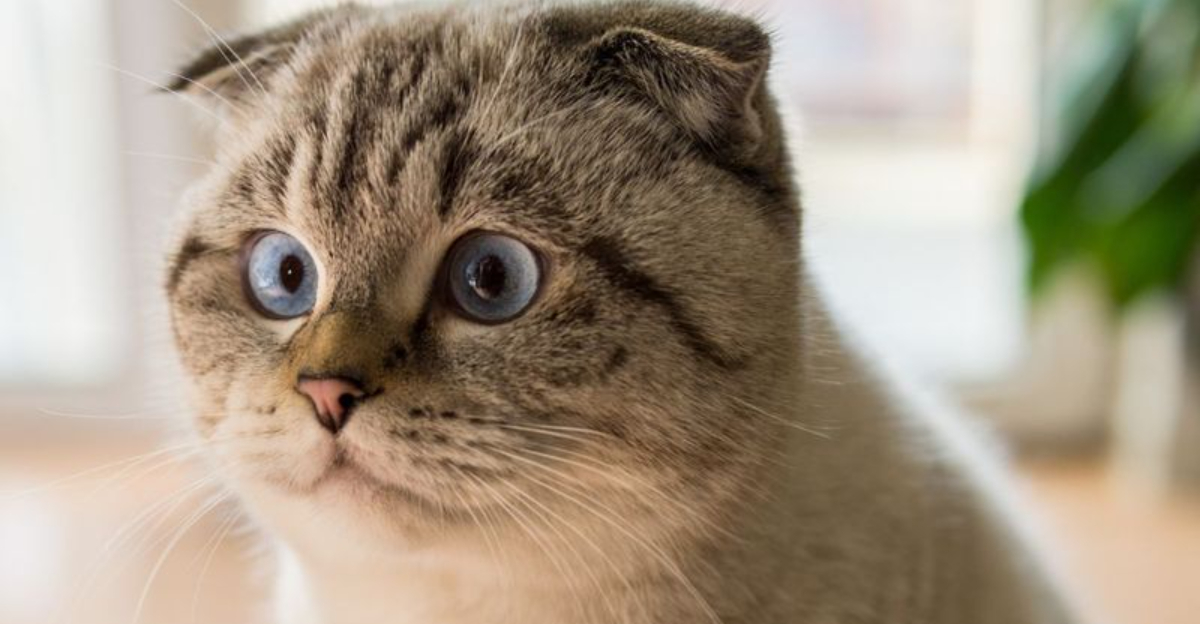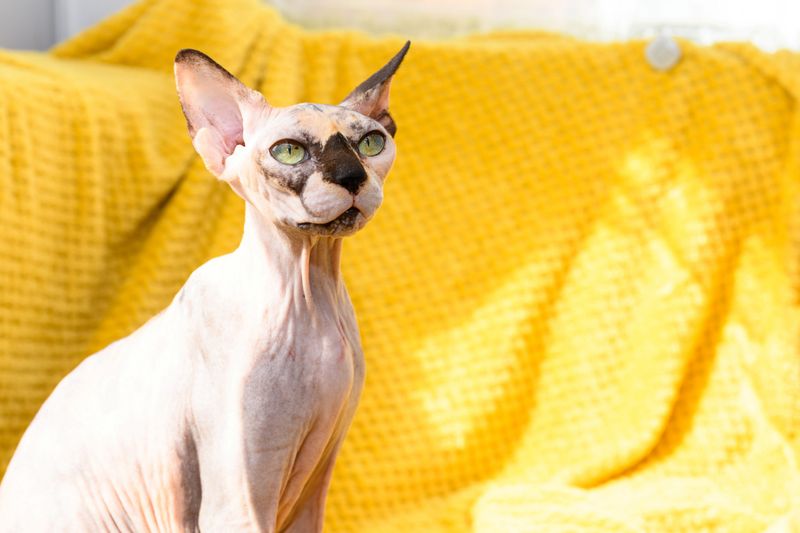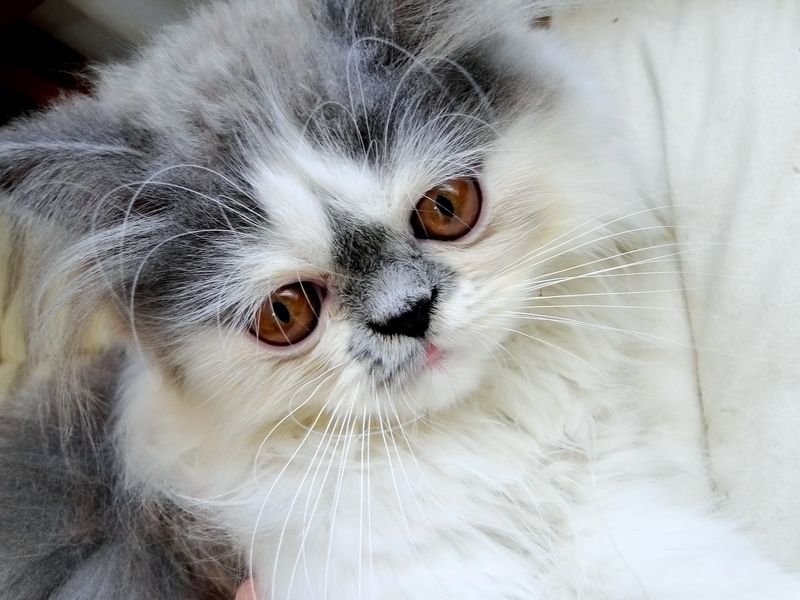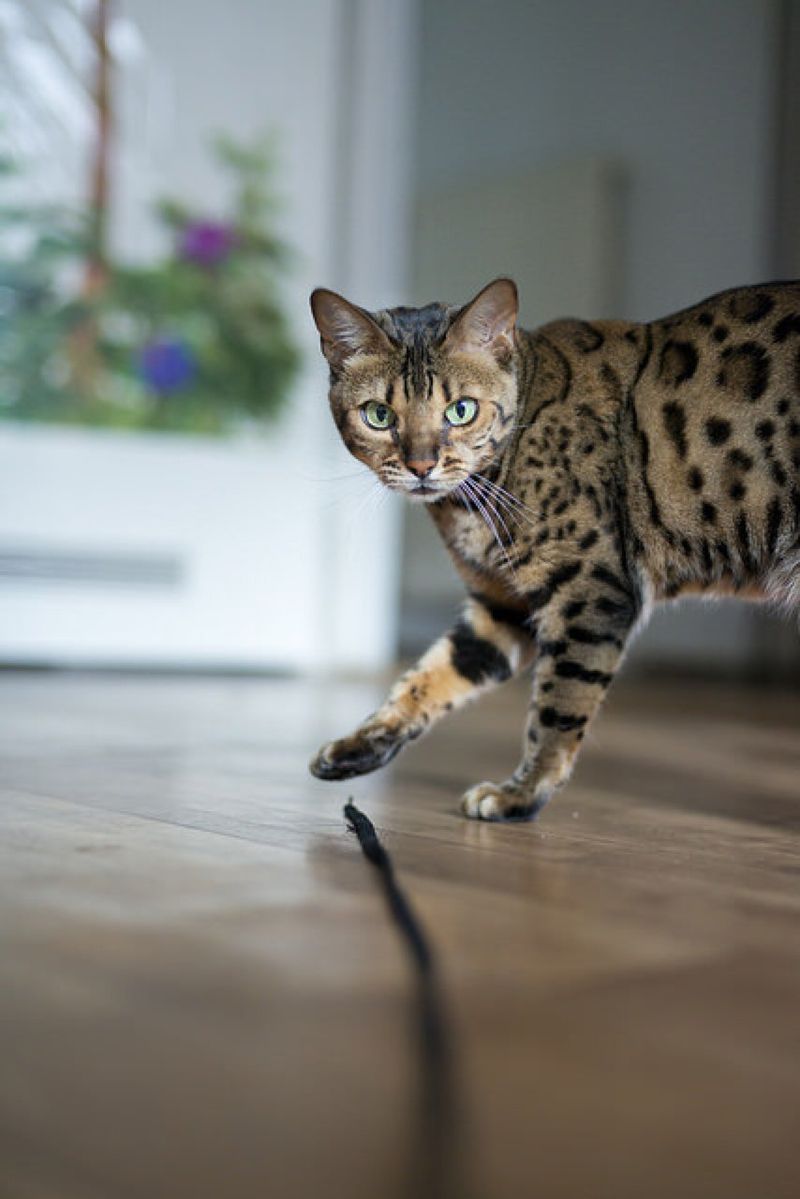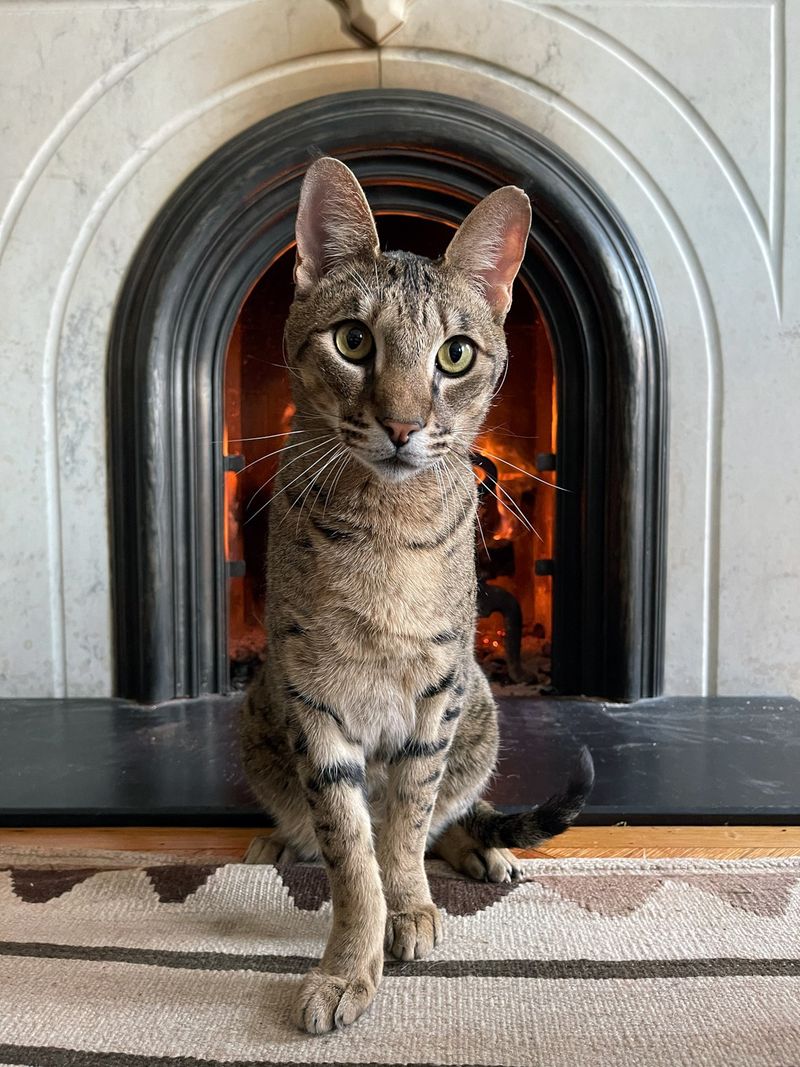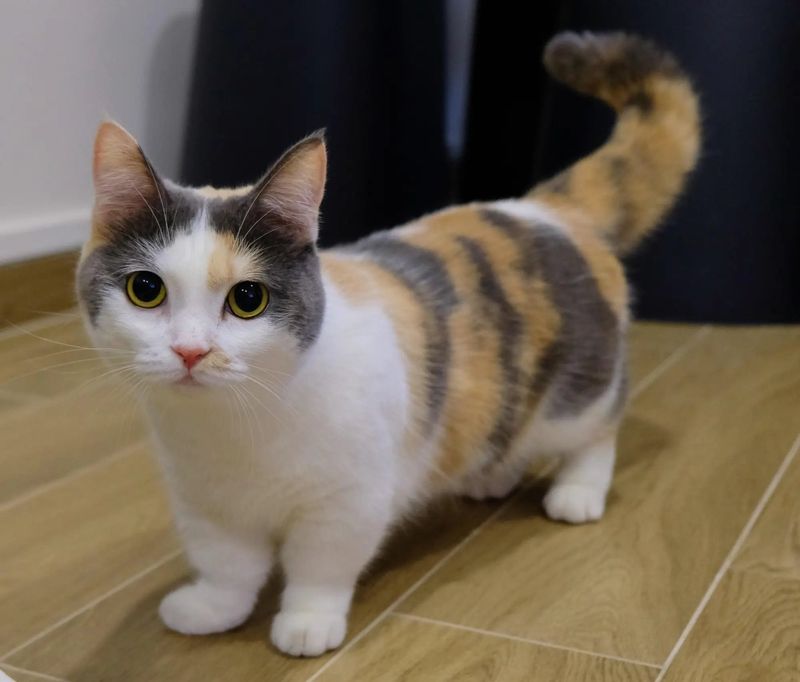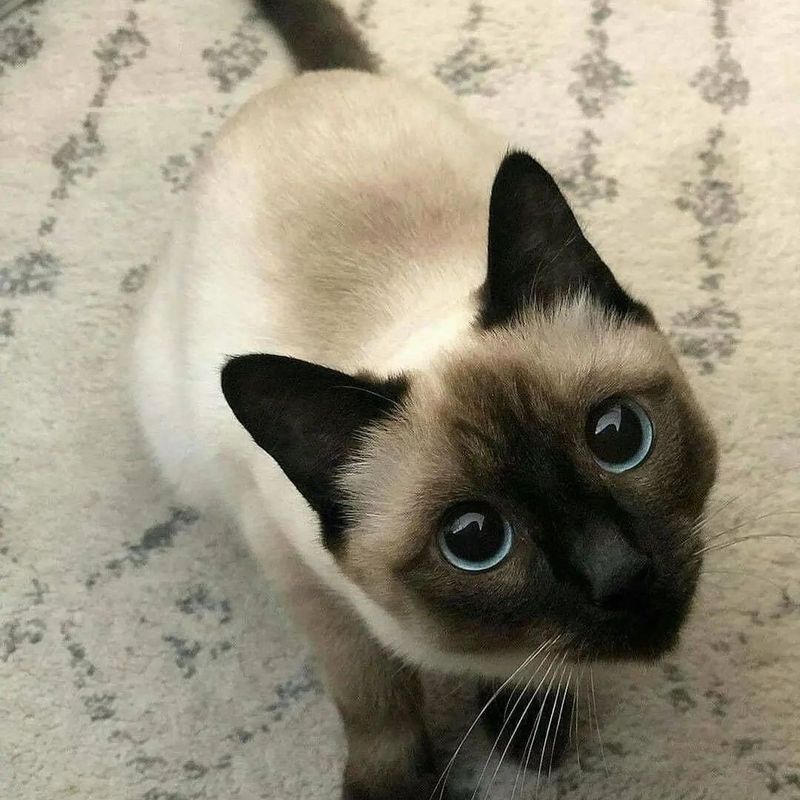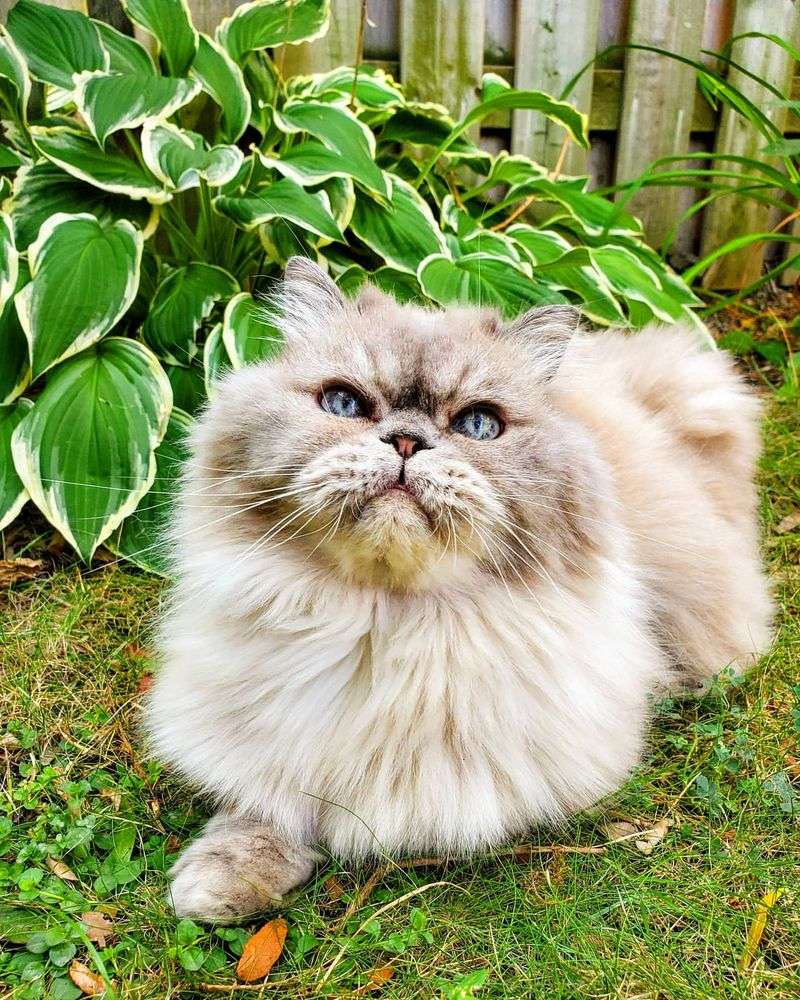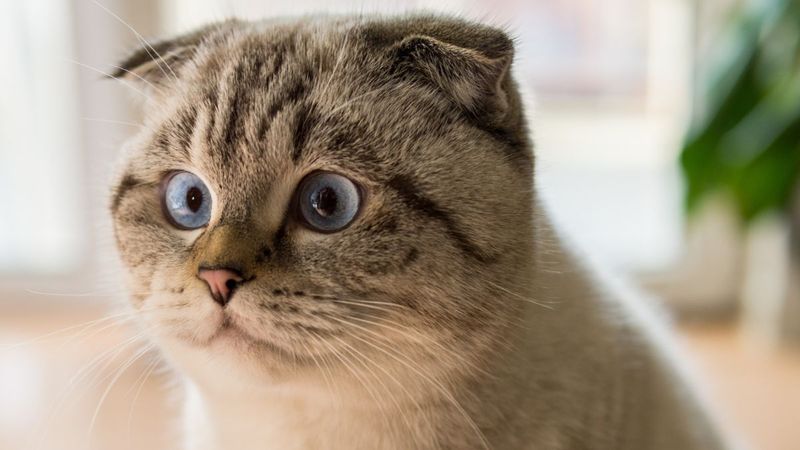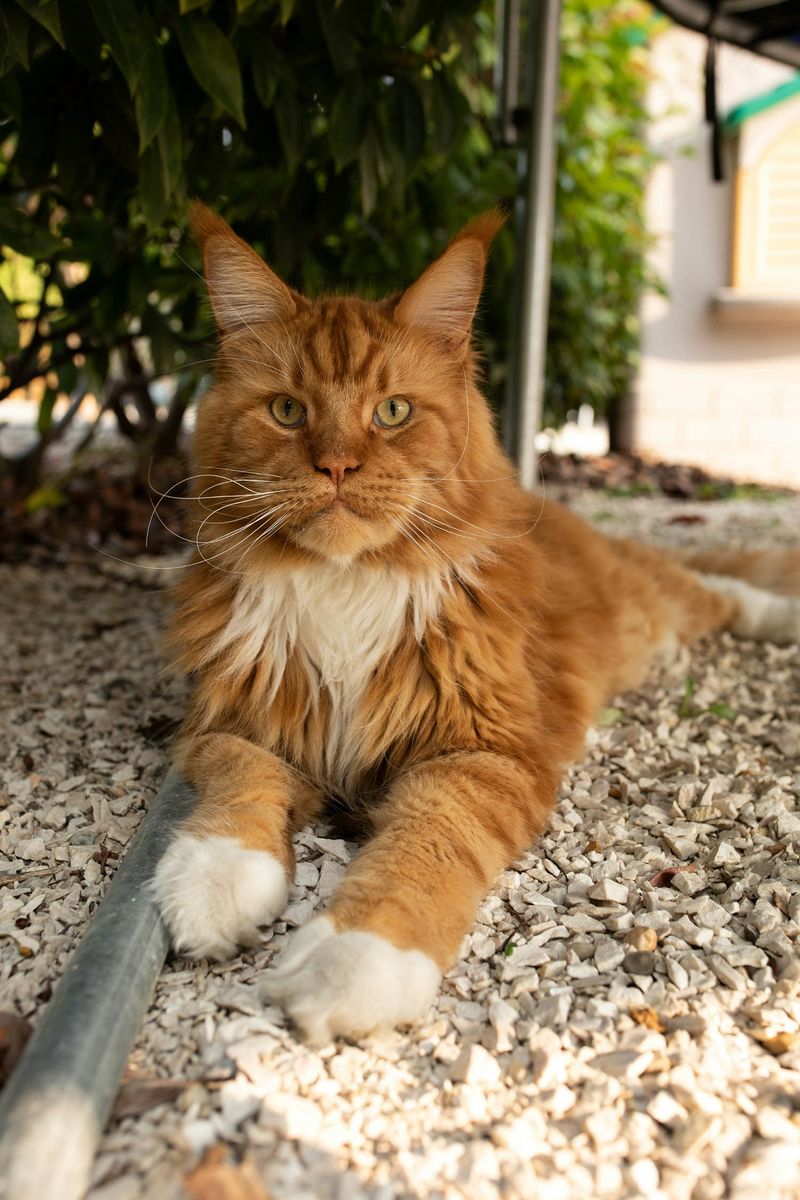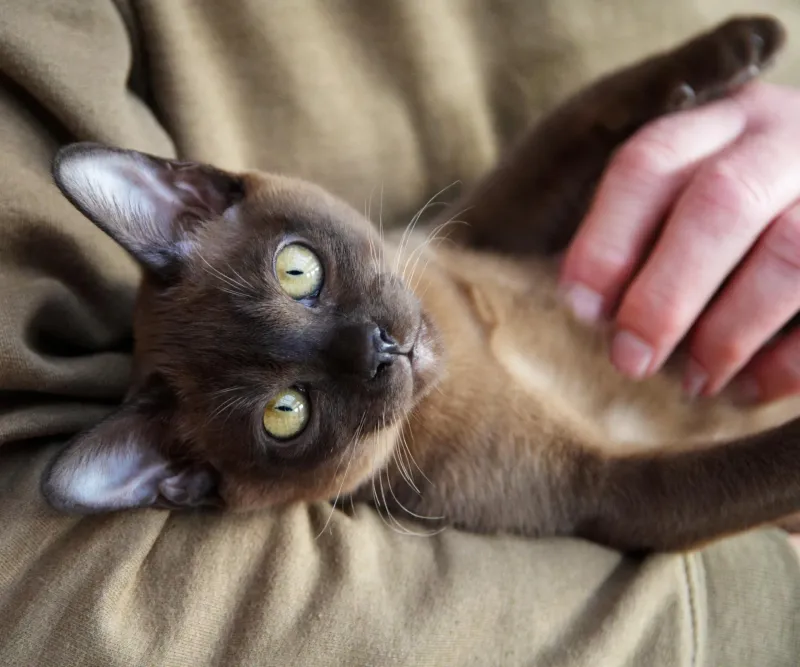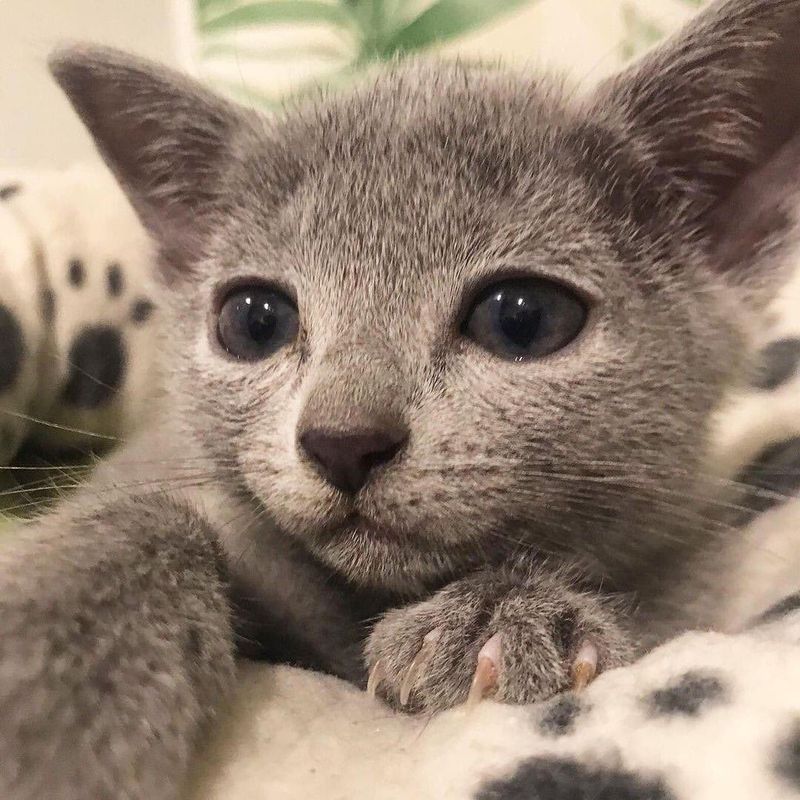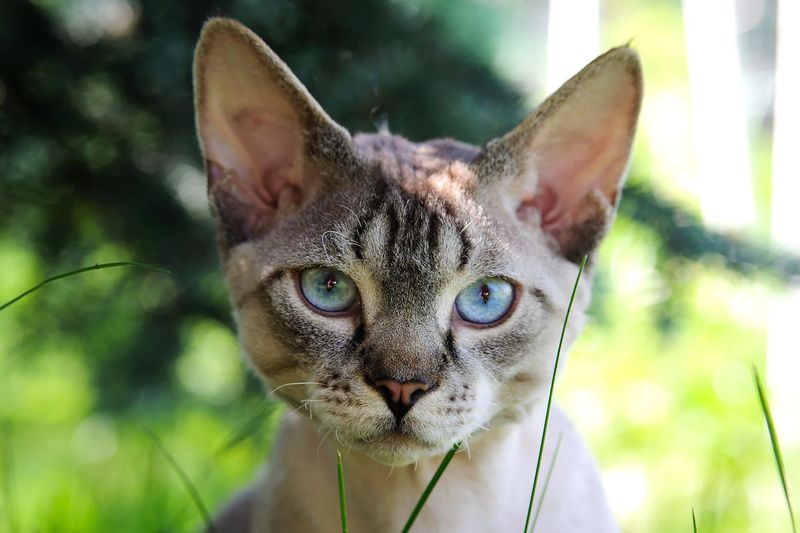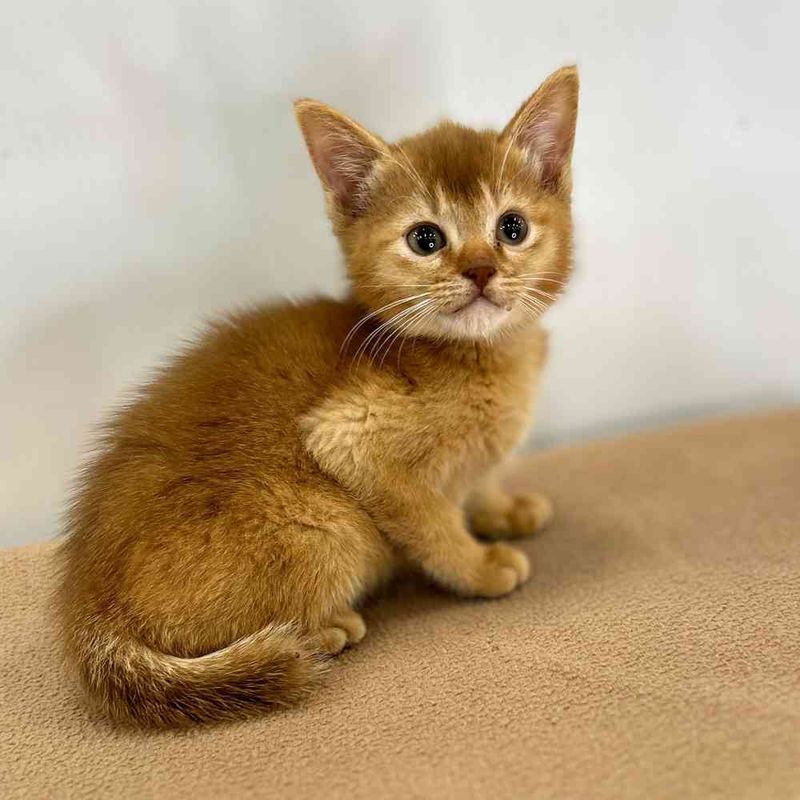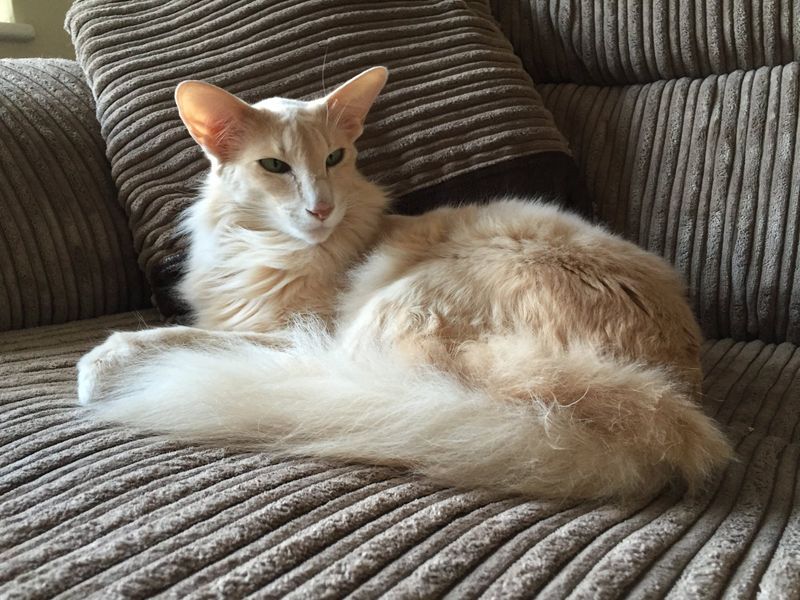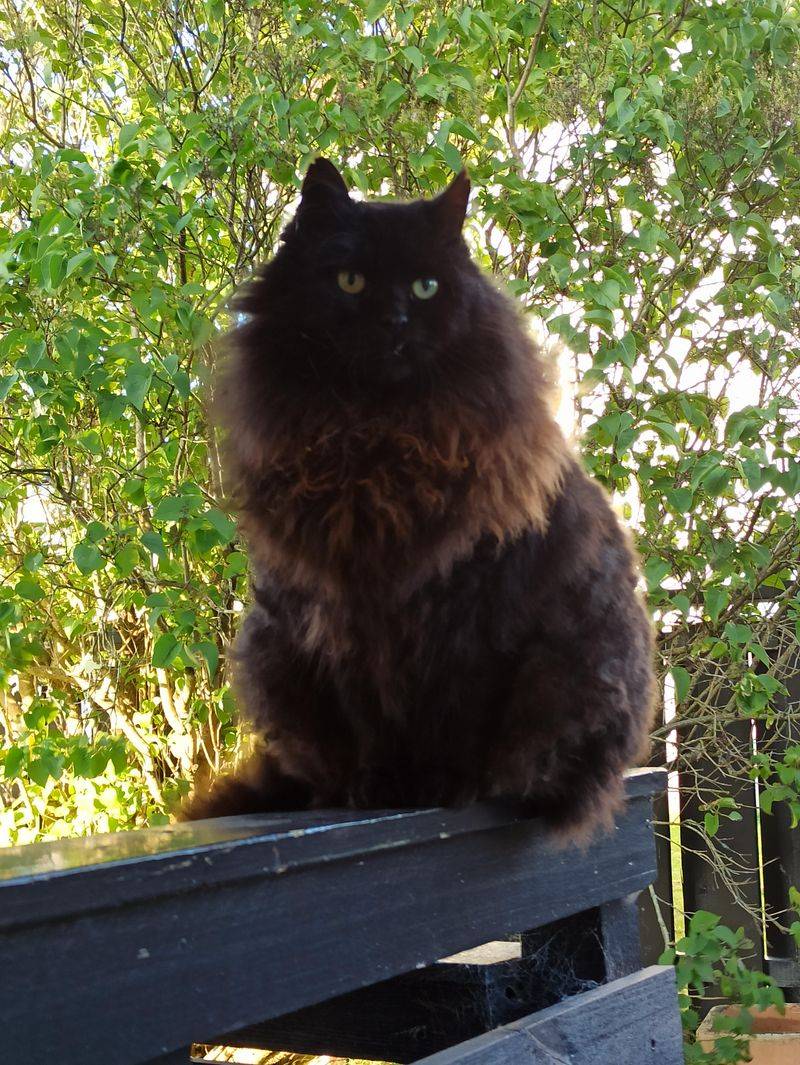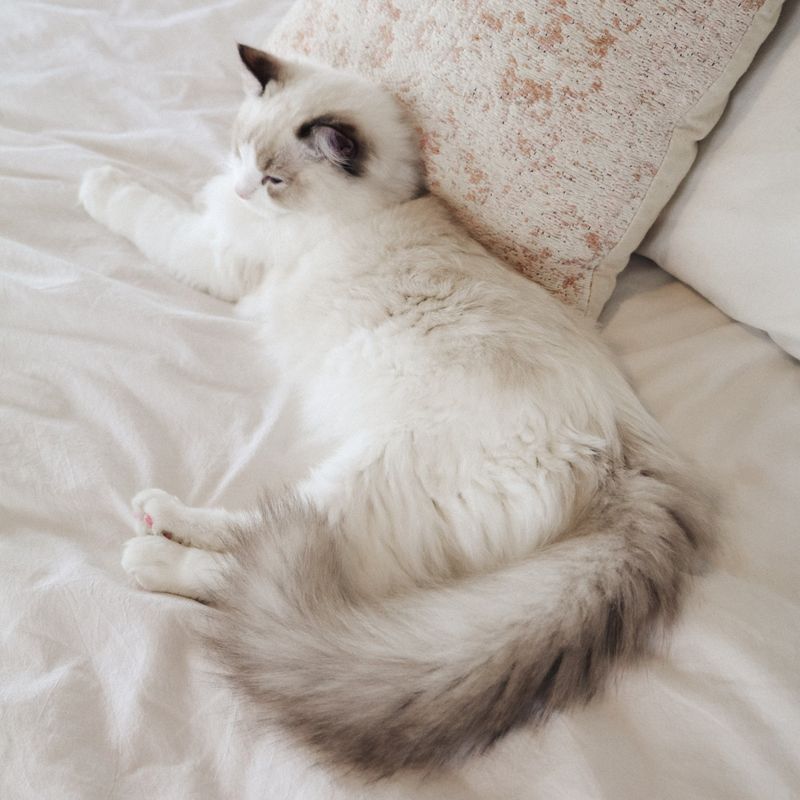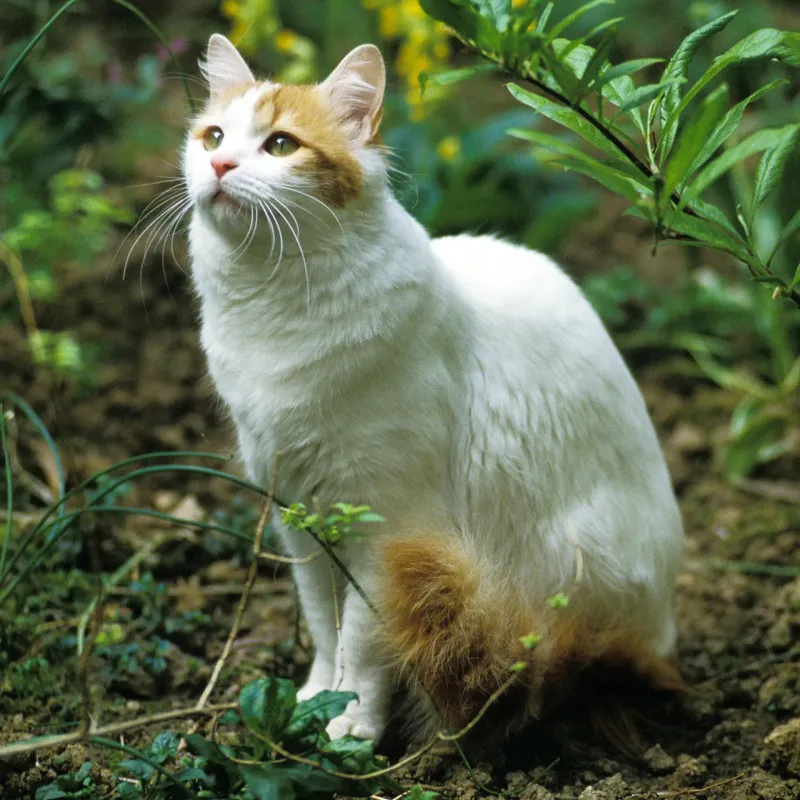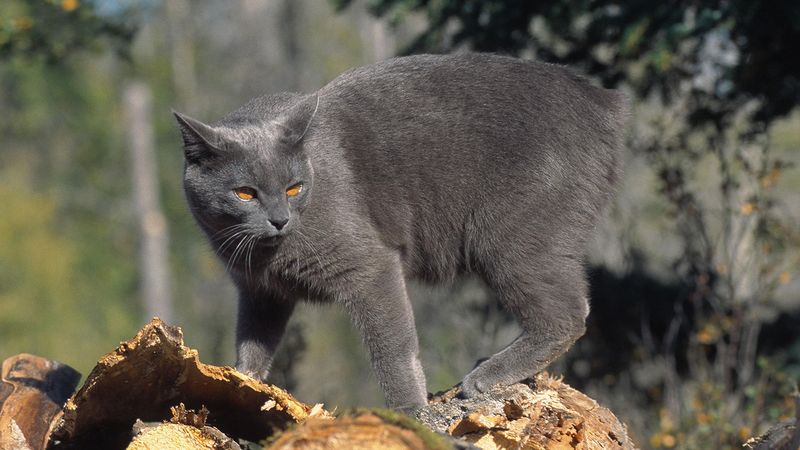📖 Table of Content:
Choosing the right cat breed is crucial to ensuring a harmonious home. While cats are wonderful companions, some breeds require more specialized care and attention than others. It’s important to recognize that not all breeds are suited for every household or pet owner.
Certain cat breeds can present challenges due to their temperament, grooming needs, and potential health problems. For first-time cat owners or those looking for a low-maintenance pet, some breeds may not be the ideal choice. Understanding these challenges can help prevent frustration and ensure a positive experience for both the cat and its owner.
Experts suggest that prospective cat owners carefully consider the specific demands of certain breeds before making a decision. While all cats have their unique qualities, some require more time, attention, and patience. Let’s highlight 18 cat breeds that may not be the best fit for everyone, based on expert advice!
1. Sphynx
The Sphynx cat is famous for its hairless appearance, which can be both a blessing and a curse. While they don’t shed fur, they require regular bathing to remove oil and dirt from their skin. Some potential owners might find this maintenance excessive. Additionally, the Sphynx can be prone to skin issues and sensitivity to temperature changes.
They demand a warm environment and can easily catch a cold. Despite their affectionate nature, the Sphynx may not be the best choice for those unprepared for their specific needs.
2. Persian
Known for its regal look and flowing coat, the Persian cat exudes beauty. Daily grooming is essential to keep their long fur free from tangles and mats. Due to their flat faces, Persians are susceptible to breathing issues, and regular eye cleaning is needed to prevent staining from tears.
While their calm and laid-back personality may seem appealing, the grooming and health considerations make them a challenging breed for some. Regular vet visits are crucial to ensure their well-being.
3. Bengal
With their wild, leopard-like appearance and boundless energy, Bengal cats are a unique and captivating breed. They thrive in environments where they have room to roam and plenty of activities to keep them engaged, making them less suitable for apartment living. Bengals require frequent attention and mental stimulation, or else they may become mischievous.
Their high energy levels and curiosity might not suit all households. While they are intelligent and engaging, potential owners must be prepared to invest time in their care and enrichment.
4. Savannah
Resembling a wild serval, Savannah cats are an exotic and intriguing breed that requires plenty of space to thrive. They are best suited for homes with outdoor enclosures to accommodate their adventurous nature. Their agility and strength can make them more demanding, often requiring more time and attention than typical domestic cats.
They tend to form strong bonds with their owners, which can lead to separation anxiety. Potential owners must consider the commitment and resources required to keep a Savannah cat happy and healthy.
5. Munchkin
With their signature short legs and playful attitude, Munchkin cats are undeniably charming. However, the genetic mutation responsible for their small size can result in health problems, including issues with their joints and spine.
They might face issues related to spinal health over time. While Munchkins are generally sociable and affectionate, the ethical implications of breeding them for their appearance should be carefully considered. Prospective owners must weigh these factors before bringing a Munchkin cat into their lives.
6. Siamese
Siamese cats are celebrated for their striking looks and vocal nature. They form strong bonds with their humans, often demanding constant interaction and companionship. This breed’s social needs might be overwhelming for owners who are frequently away from home. They can also be prone to respiratory issues and require regular health monitoring.
Their active and curious nature can lead to mischief if not properly entertained. Potential owners should be prepared for their high energy levels and need for engagement.
7. Himalayan
Closely related to Persians, the Himalayans share the same luxurious coat and flat-faced appearance. They require daily grooming to maintain their coat’s condition and prevent matting. Their facial structure can lead to breathing problems and eye issues, necessitating regular veterinary care.
Himalayans are known for their calm and gentle temperament, but their maintenance needs can be demanding. Prospective owners should consider the time and effort required for grooming and health care. Their serene nature is best suited for owners who can meet their specific needs.
8. Scottish Fold
Scottish Folds are known for their distinct folded ears, which give them a charming appearance. However, this breed is prone to genetic issues affecting their bones and joints, leading to potential health complications. They require regular veterinary check-ups to monitor any developing conditions.
The care and medical attention needed might be overwhelming for some owners. Their playful and gentle demeanor can be deceiving, as they may experience discomfort due to their genetic predispositions. It’s essential to consider these aspects before adopting a Scottish Fold.
9. Maine Coon
Known for their large size and gentle nature, Maine Coons are one of the most friendly and sociable cat breeds. However, their size means they need ample space to move around comfortably, and their care can be costly.
Grooming is essential to keep their dense coat free of tangles. Maine Coons can be prone to heart conditions, requiring regular check-ups. Their size and care requirements might be intimidating for some potential owners. Despite their affectionate personality, the commitment to their care should not be underestimated.
10. Burmese
Renowned for their shiny coat and affectionate nature, Burmese cats are incredibly social and form strong bonds with their owners. They dislike being left alone for long periods and can become lonely. These cats love attention and enjoy being involved in the daily activities of their human family.
Potential owners should be aware that their need for companionship can be demanding. Burmese cats are generally healthy, but regular vet visits are still necessary. Their playful and curious temperament requires an engaging environment. Owners must be ready to provide the interaction and care they crave.
11. Russian Blue
Russian Blues are known for their plush silver coats and striking green eyes. They are generally reserved and may take time to warm up to strangers, making them less suitable for busy households. This breed thrives in a calm environment and can be sensitive to changes in routine. They are relatively low-maintenance, but their shy nature requires patience from their owners.
While they are affectionate with their families, they may not be the best choice for those seeking a highly social pet. Consider their temperament and needs carefully.
12. Devon Rex
A standout in the cat world, the Devon Rex is known for its curly coat and spirited personality. To stay happy, they require lots of playtime and mental stimulation. Their low-shedding coat is easy to maintain, and they are always seeking companionship and affection from their humans.
Their playful antics can be entertaining, but their energy levels might be overwhelming for some. Prospective owners should ensure they have the time and resources to meet the Devon Rex’s lively demands.
13. Abyssinian
Active and curious, Abyssinians are distinguished by their beautiful ticked coat. They enjoy environments where they can freely climb and explore, making them best suited for spacious homes. Their intelligence and curiosity mean they need constant mental challenges to stay entertained.
They form strong bonds with their owners, but their need for activity can be demanding. Potential owners should consider their lifestyle and ability to provide a stimulating environment for this energetic breed. Abyssinians are captivating but require commitment.
14. Oriental
Elegant in appearance with large ears, Oriental cats are outgoing and love to talk. Their social nature means they need constant attention, making them perfect for families who enjoy interactive pets. Without proper stimulation, these cats may get bored and exhibit destructive behavior.
Their fine coats require minimal grooming, but they benefit from regular play sessions. Owners should be prepared for their talkative and engaging nature, ensuring they have the time and energy to meet this breed’s demands.
15. Norwegian Forest Cat
The Norwegian Forest cat is equipped with a thick double coat, well-suited for colder climates. While their majestic appearance is captivating, they require regular grooming to keep their coat in top condition.
This breed is known for its independence, making it suitable for owners who prefer a less demanding pet. However, they still need interaction to maintain their social skills. Norwegian Forest cats are generally healthy, but potential owners should be prepared for the grooming and attention they require to thrive.
16. Ragdoll
Ragdolls are stunning blue-eyed beauties known for going limp when picked up, but their care requirements can be overwhelming. Their long, silky coats demand daily brushing to prevent painful mats and hairballs.
Health-wise, these cats are prone to hypertrophic cardiomyopathy, a serious heart condition that can lead to sudden death. Many owners aren’t prepared for the potential veterinary bills.
Their extremely docile nature also makes them vulnerable outdoors. Ragdolls lack street smarts and defensive instincts, putting them at risk if they escape. First-time cat owners often underestimate the commitment these dependent felines require.
17. Turkish Van
Turkish Vans stand out with their unusual love for water, but this quirky trait creates household havoc. These cats will splash in toilets, knock over water glasses, and even join you in the shower uninvited!
Energy levels through the roof make them challenging roommates. Turkish Vans need constant stimulation and can become destructive when bored, climbing curtains and launching off furniture at 3 AM.
Late maturity is another consideration – these cats don’t reach full emotional development until age 3-5 years. During this extended “teenage phase,” they test boundaries relentlessly. Most families aren’t equipped for their high-maintenance personalities.
18. Manx
Manx cats charm people with their rabbit-like appearance and missing tails, but this distinctive trait stems from a genetic mutation with serious consequences. The same gene that causes taillessness can lead to Manx Syndrome – a collection of spinal defects affecting the nervous system.
Affected cats may struggle with bowel and bladder control throughout their lives. Even healthy-appearing Manx kittens can develop problems months later, leaving owners with difficult care decisions.
Finding ethical breeders proves challenging too. Many prioritize the tailless look over health, perpetuating problems. Veterinary specialists caution that these cats often face quality of life issues that typical owners aren’t prepared to manage.
